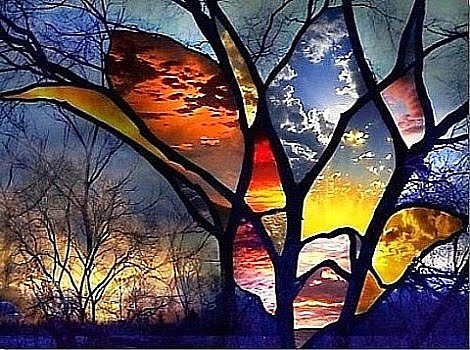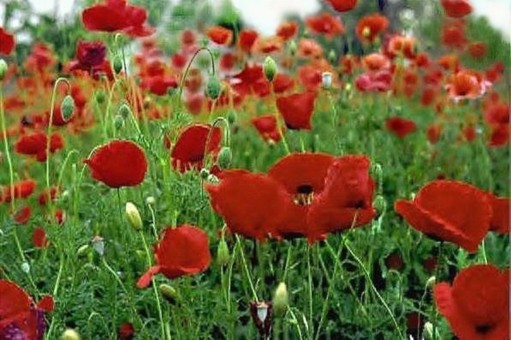"For your tomorrow, we gave our today."

They shall grow not old, as we that are left grow old:
Age shall not weary them, nor the years contemn.
At the going down of the sun and in the morning
We will remember them.

extract from For the Fallen
by Laurence Binyon, 1914
In Flanders fields the poppies blow
Between the crosses, row on row,
That mark our place; and in the sky
The larks, still bravely singing, fly
Scarce heard amid the guns below.
We are the Dead. Short days ago
We lived, felt dawn, saw sunset glow,
Loved and were loved, and now we lie
In Flanders fields.
Take up our quarrel with the foe:
To you from failing hands we throw
The torch; be yours to hold it high.
If ye break faith with us who die
We shall not sleep, though poppies grow.

In Flanders fields. by John McCrae, 1915
These are just a few of the thoughts expressed about all-out war and its aftermath. About the loss of life on an unimaginable scale. And they are made all the more poignant when one considers that war is seldom if ever the outcome of the actions of a people of a country; it is nearly always the consequence of decisions taken by those on high, the politicians who run a country, the very people who survive to tell the tale after thousands or millions of the countrymen they ordered into war lie lifeless beneath the earth, the great majority of them young men and some of them still in their teens. The elderly politicians who take a country into war live to a grand old age, the young who are sent by them to the killing fields of war die before they have scarcely lived. And many thousands of them lose their lives because of the unworkable and badly-thought-out strategies of generals who, from the safety of their positions, send them out as cannon fodder, so cheaply are their lives held.
.jpg)
.jpg)

.jpg)
No comments:
Post a Comment